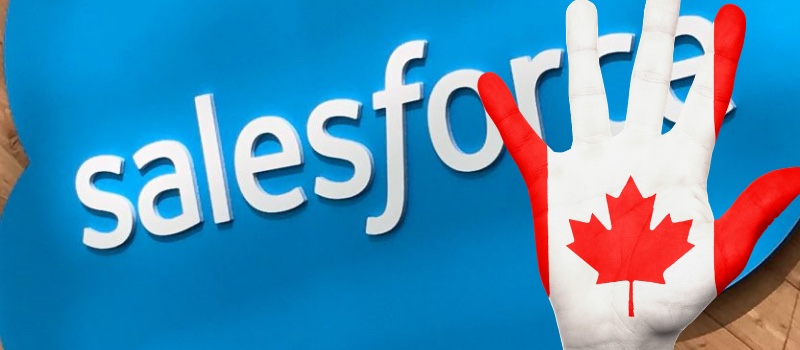Salesforce is an incredibly powerful platform, with the flexibility to manage any function that a nonprofit organization could want, and for a price that simply can’t be matched. There are a few things that you should know going in though.
1. Size and scale
Salesforce is the largest Constituent Relationship Management (CRM) provider in the world and the 3rd largest software company in the world. Many of the Fortune 500 companies, and over 75,000 nonprofit organizations rely on Salesforce to do business every day.
They take trust and security seriously, and have built a thriving ecosystem of developers, consultants and service providers around a core service that is stable and secure.
By using the Salesforce platform you will be joining some of the largest companies in the world.
2. Price
Salesforce is dedicated to giving back. From the beginning Salesforce has been committed to the 1-1-1 rule. 1% of profits, and 1% of services are donated to charity, and 1% of staff time is paid volunteer work.
Enter the Nonprofit Cloud, a special set of tools built by salesforce specifically for nonprofit organizations to help with donor management, volunteer management, and relationship tracking. Qualified nonprofits are eligible to receive 10 licences to the platform for free, with huge discounts on additional licenses and services.
The combination of price and features is simply unrivalled by other donor it constituent management systems.
3. Flexibility
Salesforce is a platform.
That sounds nice but what does it actually mean?
When you purchase a standard donor management package, you can expect a database that will track all the standard information you will need about your donors, some reporting, and likely there will be extra functions available for things like event management, or volunteer management. But when it comes time to customize the standard stuff you will find that it will be extremely difficult or not possible at all.
To draw a bit of an analogy, most donor databases are like buying a lego set. You’ll get a pre-set collection of pieces that all fit together in generally one specific way to build something cool. You may be able to buy expansion packs that do some neat things, but generally you are buying a specific kit.
Salesforce is like buying a bucket of mixed lego bricks. The pieces can fit together in almost any way you like, and if you decide that your whole castle should be pink, that’s something you can do.
Salesforce provides a framework for how different database objects can connect. What you put in those database objects, the number of database objects you have, and how they all connect to each other is entirely up to you.
Need to track donors, donations, donation designation, volunteer hours, communication campaign engagement, programming hours, cost of programming, and report on all of these. No problem, it’s just a matter of putting the lego bricks together.
The Salesforce platform is very flexible and easily customizable.
4. Server location
This one is especially important for Canadian nonprofits.
Unfortunately, Salesforce only offers servers that are located in the United States to nonprofit organizations. In late 2017, Salesforce announce an initiative to increase their infrastructure in Canada, and opened up a Canadian data centre, but currently only corporate customers are being transferred to the new data centre.
I’ve been told that they will be allowing Nonprofit Cloud customers access to the Canadian data centre eventually, but there is no firm timeframe.
This means that Canadian nonprofits that use Salesforce for tracking their donations have to be carful about how they comply with their Canadian data obligations. CRA requires that charities have their tax receipt information within Canada.
5. Tax Receipting
Unilke a dedicated donor management package, Salesforce does not come with a pre-built module that can handle the intricacies of Canadian tax regulations. It is fairly simple to build out the necessary functions and there are a number of third party applications that can be purchased, but it is something that should be considered if you are looking into the platform.
6. Customization
While Salesforce is incredibly flexible and customizable it does require some knowledge to be able to properly configure and customize your Salesforce instance. The good news is that there are some absolutely amazing training resources available, from Salesforce’s own Trailhead website that provides interactive lessons that cover the entire platform from the very beginner up to the advanced programer and ‘data architect’, to the very engaged and active ‘Power Of Us’ hub community for nonprofit organizations using Salesforce, to a thriving ecosystem of blogs, tutorials, and other online resources. Salesforce also offers individualized, one-on-one training and support through its accelerator programs, and lastly there are a number of consultants and agencies that specialize in helping you get the most out of Salesforce.
If you are interested in becoming a ‘connected nonprofit’ and putting the power of Salesforce to work at your organization contact me and let’s discuss how you can put the most powerful CRM to work for your nonprofit.



